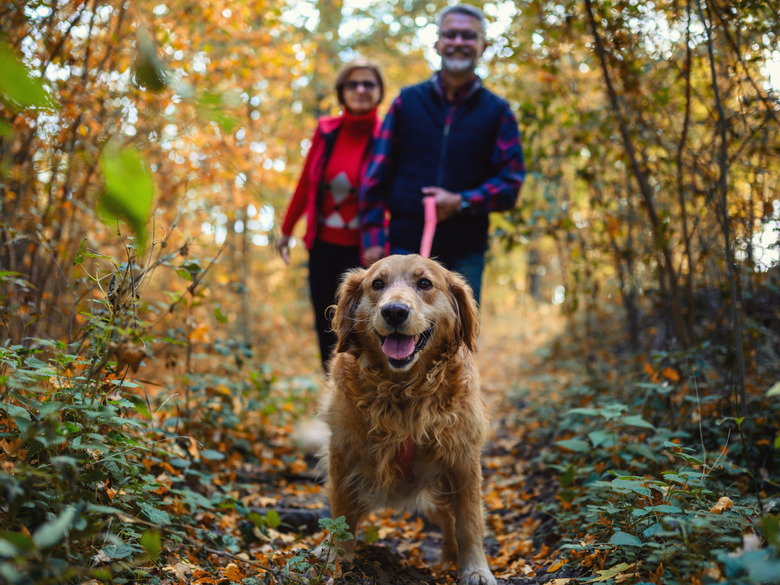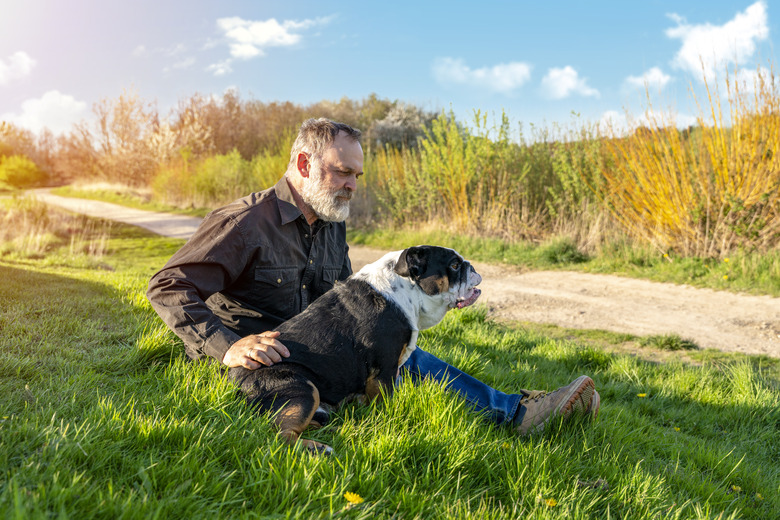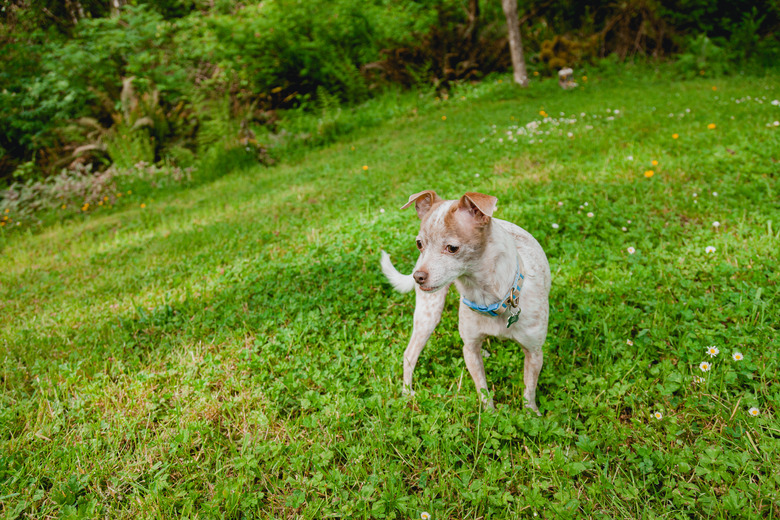What Do I Do When My Dog Gets Bit By A Rat?
If your dog was bit by a rat, you'll need to seek veterinary care as soon as possible. Rats carry a variety of bacterial pathogens, so the greatest risk from a bite is bacterial infection. Almost all wild rats carry the bacteria Streptobacillus moniliformis. This bacteria causes rat bite fever, which can be spread by bites and scratches.
A dog's rat bite requires veterinary attention
A dog's rat bite requires veterinary attention
If your dog has been bitten by a rat and veterinary care is accessible right away, take them in to have the wound cleaned. Your veterinarian will also prescribe a course of antibiotics to address any possible bacterial infection.
- Give first-aid yourself. If veterinary care is not immediately accessible (for example, if you're out on a hike), give first-aid treatment by flushing the puncture wound thoroughly with water and applying an antiseptic. Wear gloves when handling the wound to protect yourself from any exposure to potential pathogens. It's unlikely the wound will need bandaging unless the dog further traumatizes the area.
- Seek veterinary care. Then, take your dog to the veterinarian as soon as possible for further treatment. If your dog has been bitten by a mouse, follow the same instructions as for a rat. A mouse bite will be much smaller but still carries the risk of bacterial infection.
Watch for signs of problems. Dogs with a bite wound from a rat should be watched for signs of infection or illness. Signs of infection in the wound include swelling, pain, discharge, heat, and redness. Signs of illness include lethargy, loss of appetite, any behavior change, vomiting, diarrhea, abdominal pain, and muscle pain.
Risk of rabies from rats
Risk of rabies from rats
If you live somewhere with a rat problem, you have likely asked yourself, "Can my dog get rabies from a rat bite?" The risk of rabies transmission from small animals, like rats and mice, is very low. However, rabies, which can be life-threatening, is always a concern with wild animal bites. To protect your dog from rabies, make sure their rabies vaccinations are up to date. In many states, current rabies vaccines are required by law.
Risk of leptospirosis from rats
Risk of leptospirosis from rats
If your dog eats a dead rat, they are possibly at risk of contracting leptospirosis, a bacterial disease transmitted by the urine of wild rodents that can cause kidney disease in dogs and even death. The Centers for Disease Control and Prevention (CDC) says that leptospirosis used to be rare but has become more common in pets in recent years. They suggest that you can reduce the risk of lepto by keeping the populations of rats and mice under control.
Symptoms of leptospirosis to watch for are:
- gastrointestinal upset
- diarrhea
- vomiting
- intestinal obstructions
- bloody poop
If your dog is sick with suspected leptospirosis, they should be isolated from other animals and taken to veterinarian for diagnosis and treatment. Leptospirosis is also transmittable to humans, so if your dog is diagnosed with leptospirosis, avoid contact with their urine and wash your hands thoroughly after handling them.
Risks of a dog getting sick from rat poison
Risks of a dog getting sick from rat poison
If rat poison killed the rat, then that poison can affect your dog. Seek veterinary attention if you know your dog ate a poisoned rat or if they're exhibiting any of these symptoms: weakness and lethargy, pale gums, bruising, breathing difficulties, coughing, vomiting and diarrhea, or collapse. These are indications that your dog may have ingested rat poison. The veterinarian will likely monitor your dog's blood clotting times for any abnormalities. They may also recommend vitamin K supplementation for a period of time.
Risks of other diseases from rats
Risks of other diseases from rats
There are some other less common diseases wild rats can carry (even less common in pet rats).
- Plague. Plague, transmitted by fleas, is a rare infection in dogs that can occur if a dog is bitten by a flea that also fed on an infected rat.
- Tularemia. Tularemia is transmitted through ticks and other blood-sucking insects and also through blood and tissue. It can be treated in dogs with a course of antibiotics.
- Hantavirus. Hantavirus is spread through rodent droppings, urine, or saliva. While dogs can contract it, they don't seem to get sick or exhibit any symptoms from it.
- Salmonellosis. Salmonellosis can be transmitted through the feces of rodents. Dogs with the disease may show no symptoms, or they might experience fever, diarrhea, dehydration, or shock.
Your veterinarian will be aware of the risk of these less common diseases in your area and can discuss this with you.
Preventing dog complications from rat bites and rodent encounters
Preventing dog complications from rat bites and rodent encounters
To keep your dog safe, regularly use good flea and tick prevention, keep rabies vaccines up to date, vaccinate for leptospirosis if recommended by your veterinarian, and keep all boosters current. Do your best to keep your personal environment free of rodents, like rats and mice. Limit your dog's contact with wild animals like raccoons, and observe your dog when the two of you are out in the wild. When walking your dog, always keep them on a leash to avoid encounters with wild animals.
The bottom line
The bottom line
While rats can carry a variety of diseases, the primary concern if your dog is bitten by a rat is bacterial infection. Take your dog to the veterinarian as soon as possible if they have been bitten to see if the bite came from an infected animal. Also check with your veterinarian if you think your dog may have eaten a dead rat. To keep your dog safe and healthy, make sure their vaccinations are up to date and try to limit direct contact with wild animals to avoid the risk of animal bites. Rat bait can be effective in controlling rodent populations, but it can also endanger other animals that eat the poisoned rodents, so it should be used with caution.


